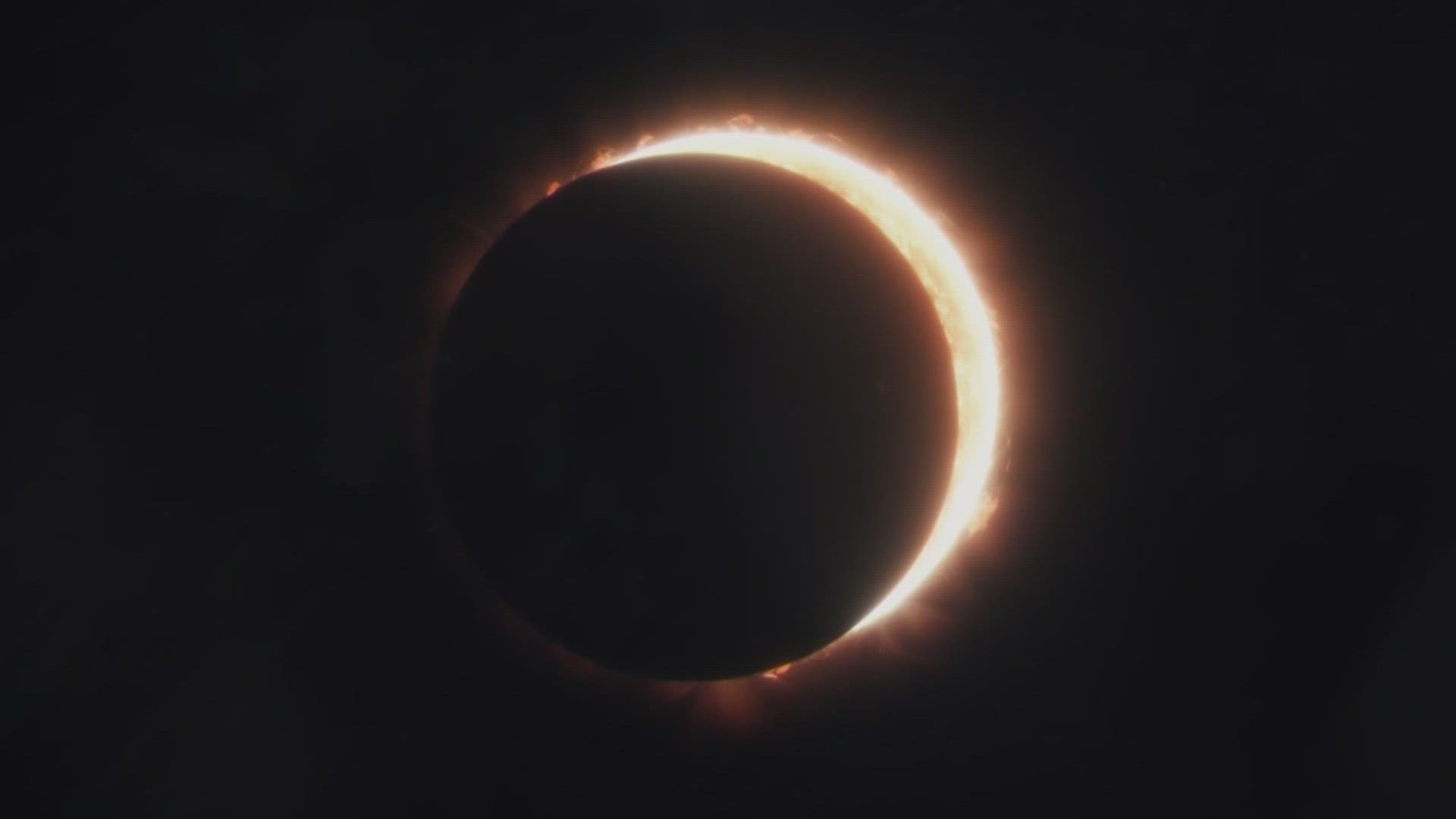ARLINGTON, Texas — In a couple of weeks, when the sky goes dark, many of us will look up, but Kim Breuer said it’s also a good time to look back.
“From the beginning of man, people stop to look at solar eclipses and what are we doing [today],” Breuer asked.
A history professor at UT-Arlington, Breuer said solar eclipses, like the one we’ll see on April 8, have always been captivating and throughout much of human history, equally terrifying.
The Maya civilization wouldn’t even look at an eclipse and not just because they didn’t have the proper eyewear.
“The Mayas suggested that you watch an eclipse in [the reflection of] water or your eyes would be pecked out by birds,” Breuer said.
Although the Mayans understood eclipses and got pretty good at predicting them, they still believed the sun’s disappearance was no coincidence.
“They were thinking the sun god is angry with us,” said Breuer. “What have we done? What do we need to atone for whatever we’re doing because next time maybe the sun won’t come back.”
Where the Maya saw a god, other cultures, like the Chinese, saw dinner.
“They thought something is eating the sun,” Breuer said. “Whether it’s a celestial dragon, a wolf, a jaguar, something is eating the sun.”
Today, it sounds crazy and yet, those beliefs aren’t ancient history.
Pieces of them persisted even into 19th century Europe where a solar eclipse was thought to signal political turmoil or danger to the king.
Breuer’s medieval technology and scientific thought class has been studying a collection of nearly 300-year-old charts, which document mankind’s historical understanding of the cosmos.
These charts, and much more ancient celestial history, are housed within the special collections at the UTA library. The artifacts include a book printed in 1534 detailing the then understanding of the universe.
“It’s actually the oldest book we have in our collections here at UTA,” said Evan Spencer, public services archivist at UTA.
Spencer says to celebrate April’s solar eclipse all of the artifacts, and more, will be on display, and open to the public, starting next week.
It’s a chance to see how our understanding of solar eclipses may have changed, but our obsession has not.
“We’re still the same today,” Spencer said. “We’re still looking up at the stars trying to understand new things.”
“We’re human,” Breuer said. “It puts us as part of this timeless human experience.”
An experience that’s incredibly rare.
Three hundred years will pass before a total solar eclipse appears in the skies over North Texas again.
“It’s our time and we all better hope that the gods, the fates, the dragons take the clouds away for us,” Breuer joked.
If they don’t, forget history, all we’ll have is a shady past.

